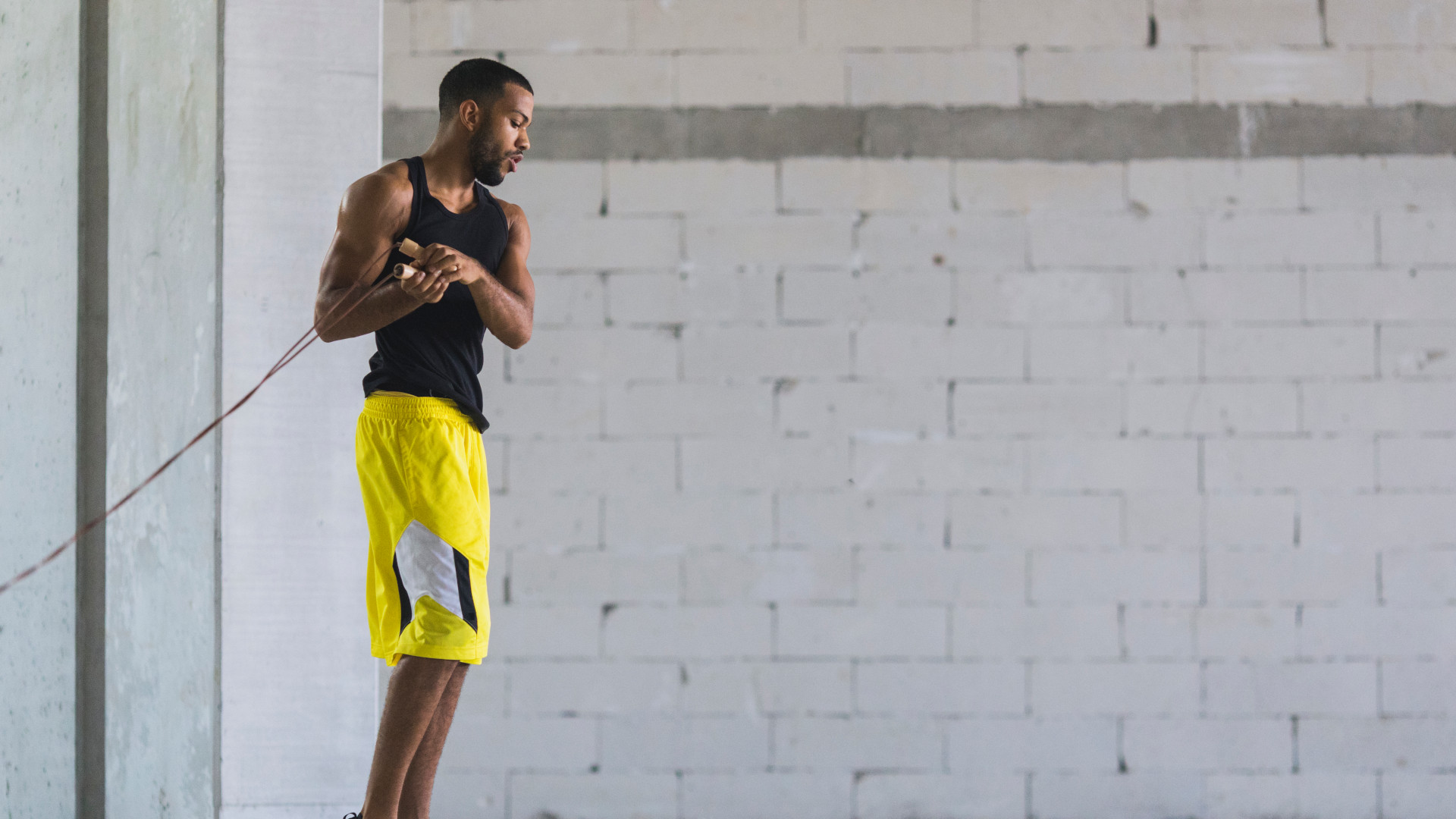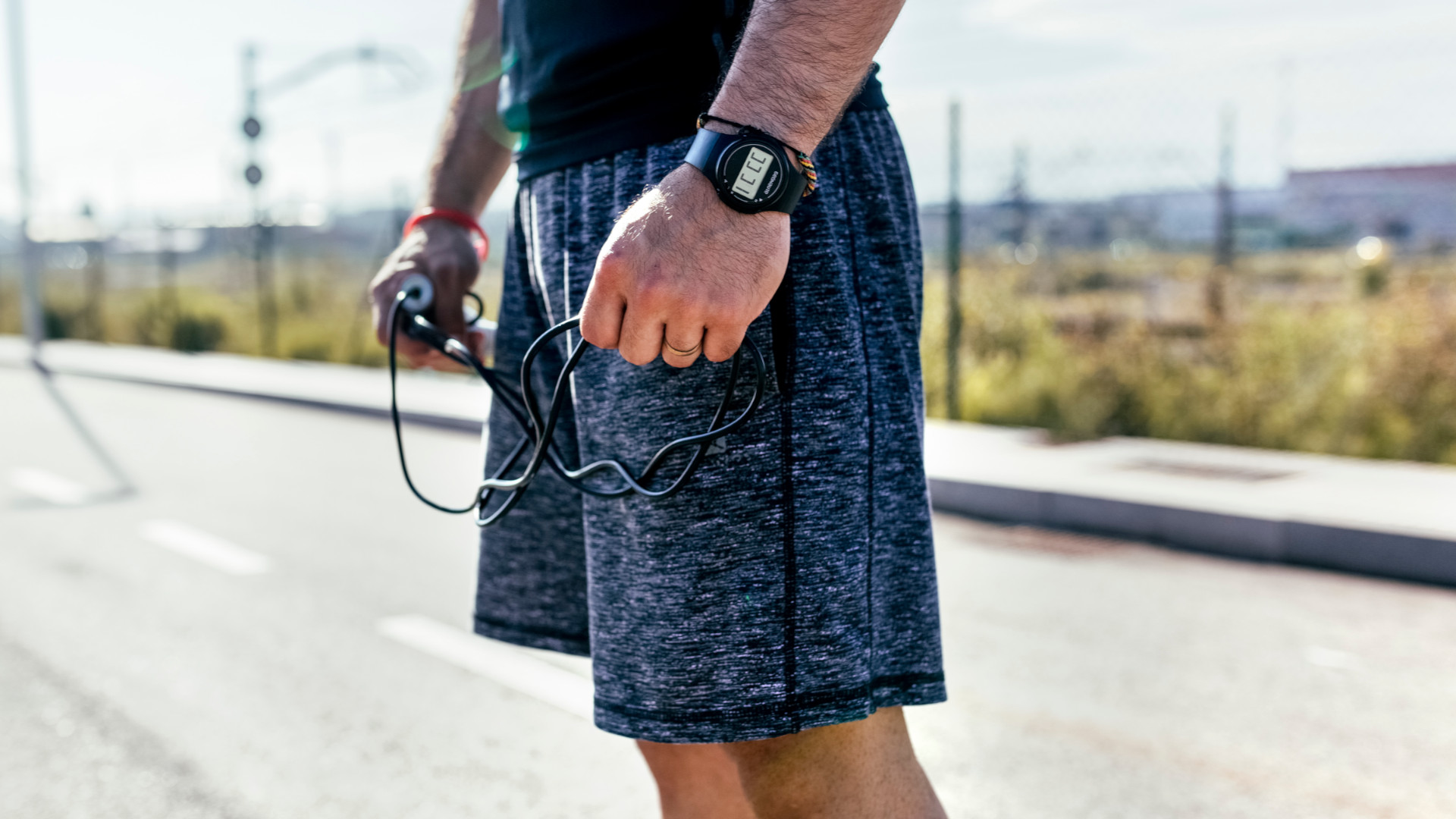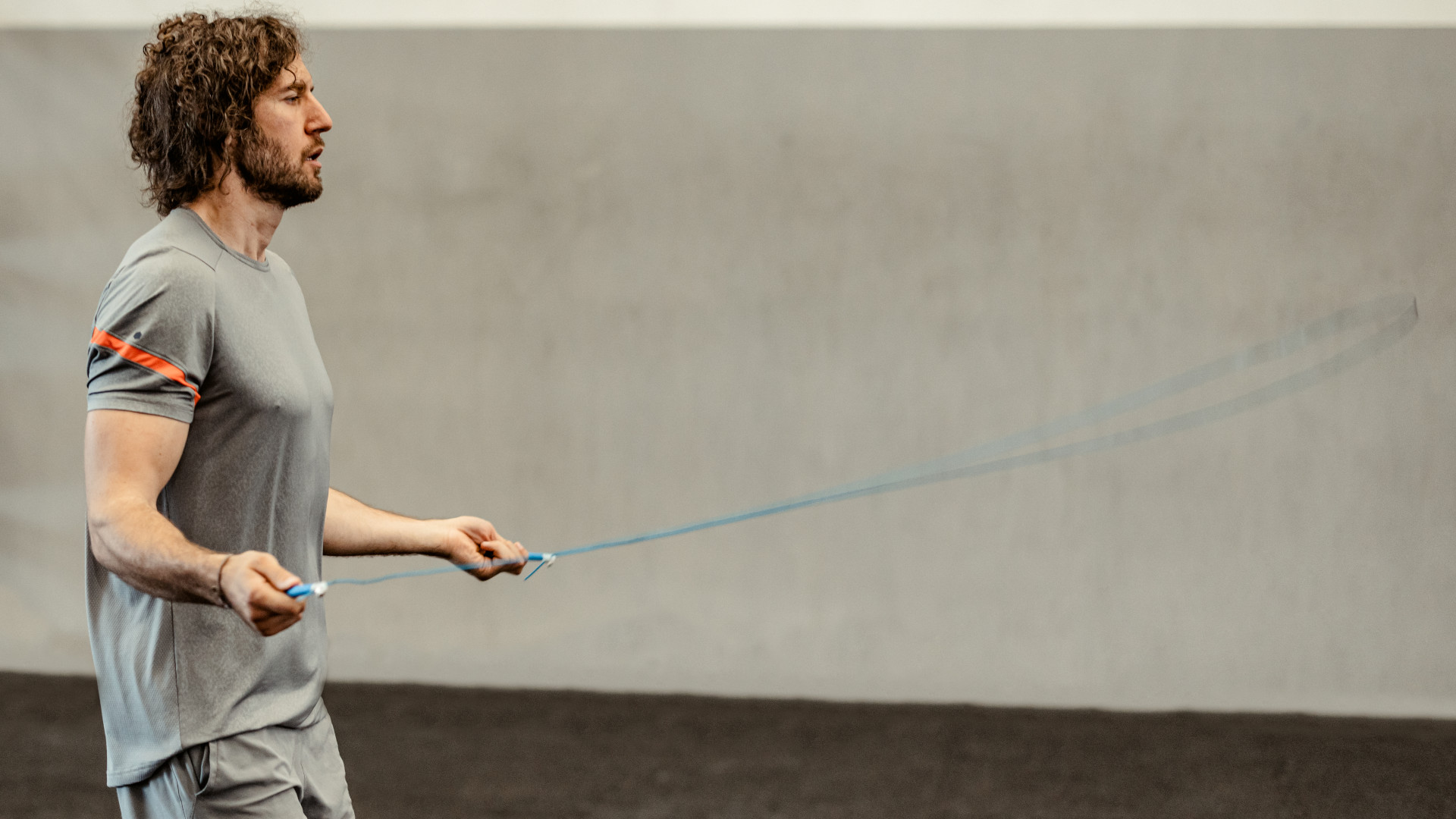What’s rope flow: the low-impact exercise that can improve balance and boost mobility
Whip your body back into shape using nothing but a rope


If you’re looking for a full-body workout that’s low-impact, cost-effective and great for improving joint health and balance, you may want to consider rope flow. “Rope flow is a method of skipping using rotation and ground pressure through the feet as a guiding principle,” says Hiking Movement Coach, Chase Tucker, founder of Chase Mountains. However, there’s no jumping involved.
Being able to move our body through various planes of motion is key in helping us stay healthy and injury-free, and that's exactly what rope flow does, whilst strengthening the joints and muscles. If you live a pretty sedentary lifestyle, it can be ideal. However, rope flow is also great for the mind, as well as our body.
Fancy giving it a go? Here’s everything you need to know.
What is rope flow?
Rope flow is just like using a jump rope but without the jumping. Essentially it’s swinging and moving it around your body, and your body around the rope. It was popularised by David Weck as part of his ‘WeckMethod’, a practice that teaches the body how to move through rotational and vertical movement patterns using specialised equipment, like the rope.
Benefits of rope flow

1. Full body workout
Your upper and lower body muscles are engaged during rope flow, from your core to your shoulders, arms, legs, and even your wrists. Just like a normal jump rope, it can be a great for your cardiovascular health, but without the jumping, so it’s more gentle on the joints. You can also get different weighted ropes, so it’s also a great way to improve muscle endurance and strengthen joints. It just depend on your goals.
2. Improves coordination and mobility
Get all the latest news, reviews, deals and buying guides on gorgeous tech, home and active products from the T3 experts
Rope flow can improve the range of motion in your joints, as you’re moving your body through multiple planes of motion. This doesn’t just boost mobility, but coordination too, as you have to try and move in a connected manner with the rope. Better coordination and mobility can also reduce the likelihood of injuries and aid better balance.
3. Relaxing
Timothy Sheiff, the founder of Way of the Rope, says that the rope can help relax your mind. Once you’ve mastered the basic movements of the rope and are able to string them together in a flow-like-state, it can become quite a meditative practice.

4. Cost-effective and portable
As the name implies, you don’t need lots of fancy equipment for rope flow, just a single rope. While there are ropes that are designed specifically for rope flow with different weights as you progress, to get started you can simply use a standard skipping rope, or even a climbing rope. Plus, it can be done practically anywhere.
5. Accessible to all
Although you may not be able to pick up a rope and immediately start swinging it about like a pro (it does require practice), it doesn’t require a specific level of skill to get going, everyone can give it a go! You just need to grab a rope and get swinging.
6. Boosts athleticism
Sheiff points out on his site that different movements within rope flow contain patterns that we use in various athletic movements, including swimming, jumping, running, punching and throwing.
How to get started
First and foremost, you’re going to need a rope. There’s lots of places where you can purchase ropes specifically for rope flow, such as WeckMethod and Way of The Rope, but as we mentioned earlier, if you just want to test the waters, a skipping rope will do.
On his website, Sheiff says that the beauty of rope flow is that you don’t need anyone to necessarily teach you as, ultimately, the rope ends up being the teacher. “If your movement is not fluid, or coordinated or well-timed the rope will slap you, and that is like a little lesson, so it’s teaching the left and right to work in unison and the same time,” he says.
Three basic rope flow movements for beginners are the underhand figure 8, overhand figure 8, and dragon roll. Below is a tutorial from Sheiff on how to master all three. But, for those who prefer in-person training, there are plenty of workshops available.
The best thing to do though is to start slowly and gradually build up the intensity over time. Don’t worry if you experience a few slaps from the rope, to begin with, this is completely normal! But as your coordination and movement improve, and you’re able to flow with the rope more, the more fluid your movement will become.

Bryony’s T3’s official ‘gym-bunny’ and Active Staff Writer, covering all things fitness. She is a certified personal trainer and also a part-time fitness instructor. In her spare time, you will find her in her natural habitat - the gym - where her style of training is a hybrid of bodybuilding and powerlifting. Bryony loves writing about accessible workouts, nutrition and testing innovative fitness products that help you reach your fitness goals and take your training to the next level.
